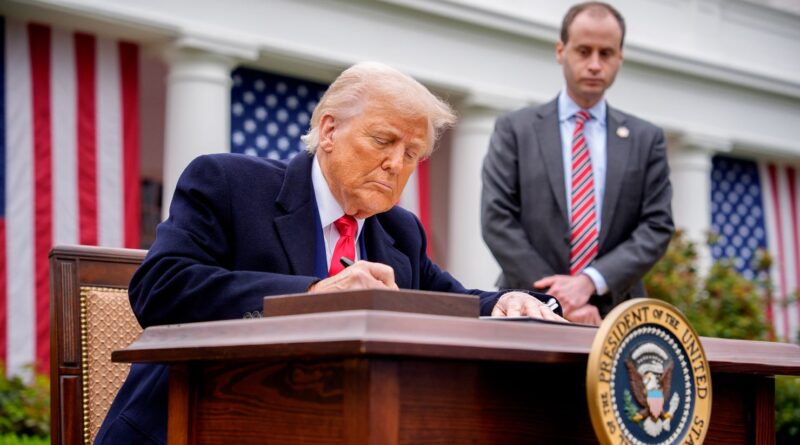Tariffs on Beijing at Stake as Trump’s Decision Looms
The upcoming Tuesday brings unease as the 90-day halt on the increment of tariffs on China stands on the edge of expiration. Hope was spurred following the latest discussions on trade between the U.S. and China, which happened at the tail end of last month. Speculations arose that this deadline, too, might be propelled further by another 90 days. The ball seemed to be in the court of the U.S. President, Donald Trump, when it came to making that decision.
At present, there hasn’t been an official declaration as to whether there will be an extension or a move towards imposing higher tariffs. The dangling situation has left the commercial sector on tenterhooks. An increase in import duties might prove to be a shockwave disrupting the global markets. The conflicting swings in deadlines and tariff percentages are prevalent traits of Trump’s regime, which leave plans for the coming Tuesday yet blurry.
A delay in deciding the terms and conditions of the trade contract with China can prevent the looming threat of intimidating tariffs reaching as high as 245%. The major triggering point behind enforcing these escalated tariffs is to set off the enormous, routine trade deficit the U.S. has with China. The increasing intimidation of tariffs led to a noteworthy drop, a 21-year low, in Chinese exports in July.
Hints about the progress of discussions are commonly given out by the U.S., in contrast, China is notoriously silent until significant decisions are solidified. Pivoting towards that practice, Beijing has decided to remain silent before Tuesday’s deadline. JD Vance, U.S. Vice President, revealed in an interview that discussions around levying additional tariffs on Beijing were under consideration due to China’s investments in Russian oil.
However, he assured that Trump is yet to finalize his decision. Extremely high tariffs on Chinese exports to the U.S. could cause significant strain on Beijing especially when the Chinese economy, the second-largest worldwide, is steadily pulling itself from a lingering depression in the property market.
The aftershocks of the COVID-19 pandemic has forced numerous individuals to rely on sporadic work or ‘gig work’, causing the job market to flinch. The increase in import taxes on smaller packages from China has dealt a severe blow to the smaller manufacturers. This resulted in an escalated wave of layoffs. However, the U.S. has a heavy dependence on imports from China ranging from mundane household goods, apparels to sophisticated wind turbines, basic computer chips, batteries for electric vehicles, and rare earth elements required for their production.
It is this reliance that hands Beijing a strategic advantage in the negotiation process with Washington. Regardless of the increase in tariffs, China continues to stay competitive for numerous products. Chinese leaders are conscious of the fact that the U.S. economy is yet to make adjustments to the side-effects of inflation from the tariff increment.
As it stands today, imports from China are subjected to an initial tariff of 10% and an auxiliary 20% tariff related to the fentanyl controversy. Certain products attract higher tax rates. Exports from the U.S. to China are taxed at roughly 30%. Quelling of hostilities was achieved when Trump threatened imposing alarming 245% import duties on goods from China.
China, in response, warned it would elevate its tariffs on American products to 125%. The repercussions of a trade conflict between the two superpowers of the global economy percolate across various sectors, directly affecting industrial supply chains, demand for raw materials like copper and oil, and even exerting influence on delicate geopolitical scenarios such as the conflict in Ukraine.
Following a productive telephonic conversation with Chinese leader Xi Jinping, Trump expressed his aspiration towards organizing a personal meeting with Xi within the course of this year. This serves as a strong motivator to strike a satisfactory deal with Beijing. Should the cessation of hostilities fail to hold, the trade tensions might go up a couple of notches.
Tariffs could potentially see a surge to unprecedented levels, causing further damage to both economies and casting a pall of anxiety over global markets. Businesses could possibly hold back from making decisive commitments related to investments and human resources, while inflation might see a significant rise.

